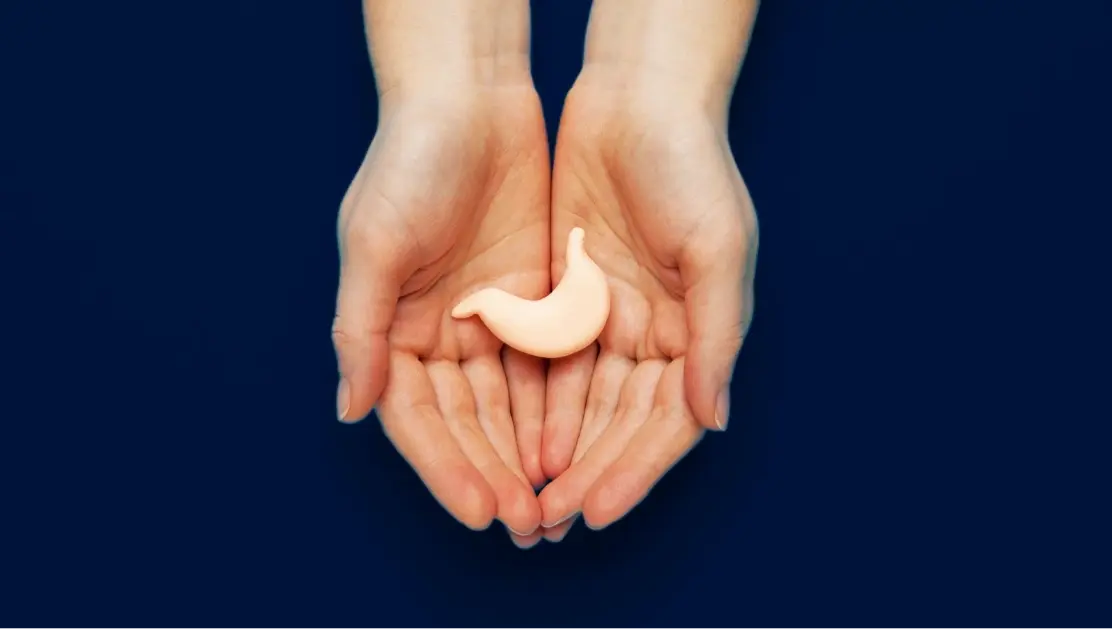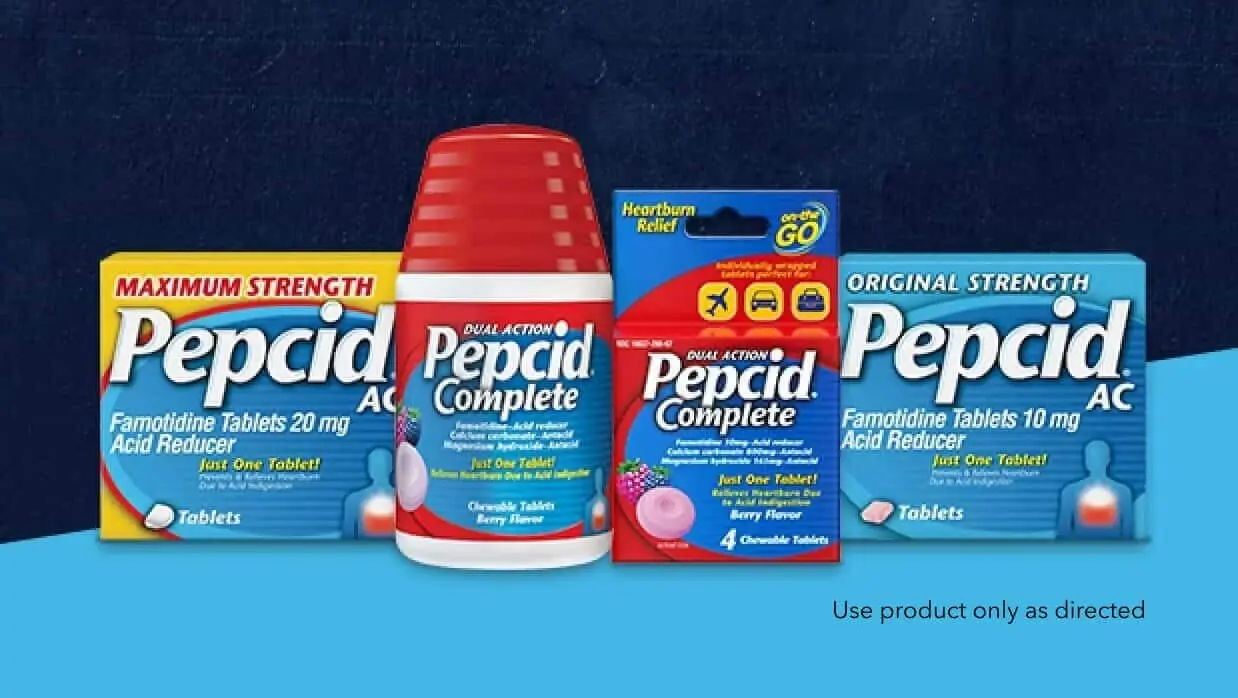Heartburn, acid reflux, and GERD are related conditions that can cause pain and discomfort. However, each of these terms refers to a distinct problem.
Acid reflux occurs when your stomach contents move back into your esophagus, the long tube that carries food from your mouth to your stomach. When acid reflux occurs regularly, it is called gastroesophageal reflux disease (GERD). Heartburn is the name of a symptom — a burning feeling in your chest, neck, or throat — that can be caused by both acid reflux and GERD1.
What Is Acid Reflux?
Acid reflux is a problem that affects the muscle at the bottom of the esophagus. This muscle, called the lower esophageal sphincter (LES), closes off your stomach from your esophagus, preventing stomach acid and digested food from flowing backwards2.
When acid reflux occurs, the LES partially opens. This allows acid to leak into the esophagus, sometimes creating burning sensations.
Acid reflux happens to everyone occasionally. However, it may be a problem if it starts to occur regularly3.
What Causes Acid Reflux?
There are several foods and drinks that can trigger acid reflux, GERD, and heartburn. Common triggers include4:
Spicy foods
Fatty or greasy foods
Chocolate
Mint
Acidic foods and drinks, such as citrus fruits or juices, tomatoes, garlic, and onions
Carbonated drinks like soda or seltzer
Caffeine drinks like coffee and tea
Alcohol
Acid Reflux Symptoms
You may not always know when you’re experiencing acid reflux — symptoms often don’t develop3.
Heartburn is a common symptom of acid reflux. Heartburn leads to a burning pain in the center part of your chest, behind your breastbone. You may also feel the burning sensation in your neck or in the back of your throat2.
Acid reflux may also lead to regurgitation, which happens when stomach acid, food, and other stomach contents come back up into your mouth. You may notice an acidic taste in your mouth, or be able to taste food that you recently ate2.
What Is Gastroesophageal Reflux Disease (GERD)?
GERD is acid reflux that occurs often or is more severe than normal. A doctor may diagnose you with GERD if you notice heartburn or other symptoms at least twice per week, or if your esophagus shows signs of damage3,5.
GERD is common. It affects about one out of five people in the United States3.
What Causes GERD?
You may develop GERD if you tend to follow a diet full of foods that can cause acid reflux, eat large meals, or have dinner soon before heading to bed4.
Some risk factors can also increase the chances that you develop GERD. These include2,5:
Being overweight or obese
Pregnancy
Older age
Smoking cigarettes
Having a hiatal hernia (a condition in which part of your stomach bulges upward, through the diaphragm muscle, into your chest)
Certain medications also lead to GERD as a side effect. You may develop GERD if you are taking non-steroidal anti-inflammatory drugs (NSAIDs), benzodiazepines, high blood pressure medications such as calcium channel blockers, asthma drugs, or tricyclic antidepressants2.
GERD Symptoms
Like acid reflux, GERD can also lead to heartburn and regurgitation. GERD can also cause2:
Being overweight or obese
Nausea
Painful or difficult swallowing
Chest pain
Frequent coughing
A hoarse voice
If GERD is left untreated for a long period of time, it can also lead to additional problems. Some long-term health effects of GERD include1:
Esophagitis — Inflammation of the tissue of the esophagus
Esophageal stricture — A condition in which the esophagus narrows
Barrett’s esophagus — A change in which the esophagus tissue starts to look like tissue found in the intestines, and people with Barrett's may develop a rare cancer called esophageal adenocarcinoma
Asthma — Inflammation of the airways
Laryngitis — Swelling and irritation of the voice box
Tooth erosion — A condition in which the outer layer of enamel on the teeth wears down
GERD Diagnosis
If your doctor suspects that you might have GERD, they may perform a physical exam and ask you about your GERD symptoms. They may also recommend several tests.
The most common diagnostic test used to look for signs of GERD in the esophagus is an upper endoscopy6. During this test, a doctor passes a long tube into your mouth and through your esophagus, stomach, and upper part of your small intestine. The tube has a camera at the end, so the doctor can see what the lining of the esophagus looks like. During an endoscopy, the doctor may take a biopsy — this means removing a small sample of tissue so that it can be further studied in the lab7.
Doctors may also recommend esophageal pH monitoring. This test measures acid in the esophagus using either a catheter (narrow tube) or a wireless capsule that transmits information to a receiver device7.
PEPCID® is not indicated for the treatment of acid reflux or GERD. If you experience symptoms of acid reflux for more than two weeks, see your doctor.
Dealing With Heartburn
Heartburn is the name of a symptom — a burning feeling in your chest, neck, or throat — that can be caused by both acid reflux and GERD1. To help manage heartburn symptoms, learn more about possible causes and potential treatments.
PEPCID® can provide fast-acting, effective relief of occasional heartburn.
References
Definition & Facts for GER & GERD. National Institute of Diabetes and Digestive and Kidney Diseases. Reviewed July 2020. Accessed December 13, 2021.
Newberry C, Lynch K. The role of diet in the development and management of gastroesophageal reflux disease: why we feel the burn. J Thorac Dis. 2019;11(Suppl 12):S1594-S1601.
Eating, Diet, & Nutrition for GER & GERD. National Institute of Diabetes and Digestive and Kidney Diseases. Reviewed July 2020. Accessed December 13, 2021.
Lechien JR, Bobin F, Muls V, et al. Patients with acid, high-fat and low-protein diet have higher laryngopharyngeal reflux episodes at the impedance-pH monitoring. Eur Arch Otorhinolaryngol. 2020;277(2):511-520.
Fan WJ, Hou YT, Sun XH, et al. Effect of high-fat, standard, and functional food meals on esophageal and gastric pH in patients with gastroesophageal reflux disease and healthy subjects. J Dig Dis. 2018;19(11):664-673.
High-fiber foods. MedlinePlus. Reviewed August 20, 2020. Accessed December 13, 2021.
Badillo R, Francis D. Diagnosis and treatment of gastroesophageal reflux disease. World J Gastrointest Pharmacol Ther. 2014;5(3):105-112.
Mone I, Kraja B, Bregu A, et al. Adherence to a predominantly Mediterranean diet decreases the risk of gastroesophageal reflux disease: a cross-sectional study in a South Eastern European population. Dis Esophagus. 2016;29(7):794-800.




